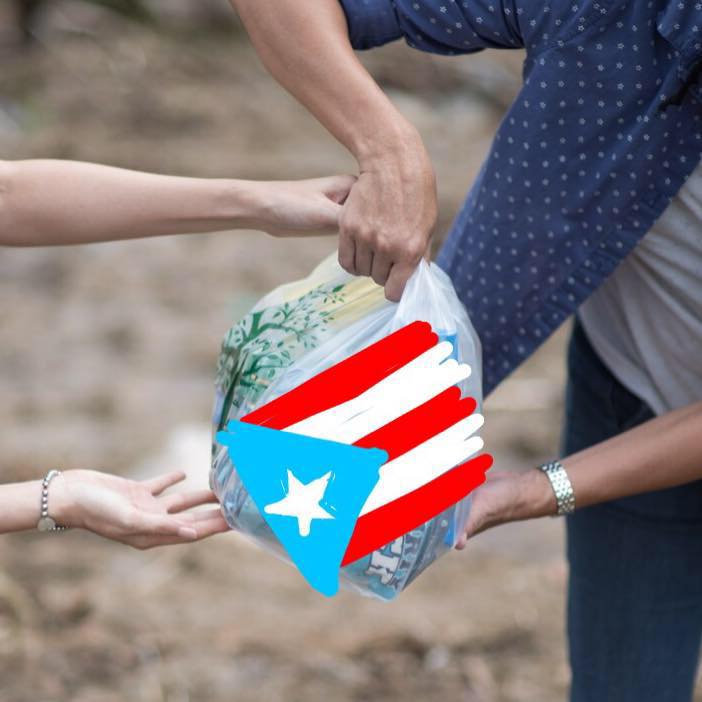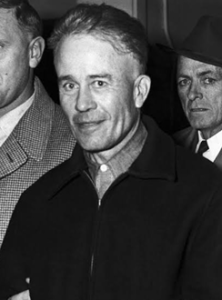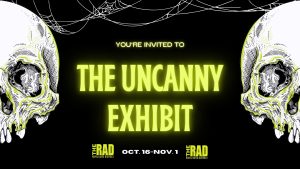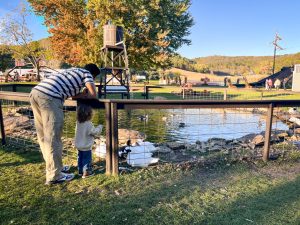Professor María del Mar Rosa-Rodríguez Visits UWL for Hispanic Heritage Month
October 12, 2018
At 5:30p.m. on Thursday, Oct. 4th in 1300 Centennial Hall, Omar Grandos, an associate professor of Spanish Studies at the University of Wisconsin-La Crosse, welcomed to campus who he called his “graduate school idol.” UWL invited María Del Mar Rosa-Rodríquez, a scholar from Universidad de Puerto Rico-Cayley, to present her work entitled, “Activism, Community, and Academia: The Fight Against Disaster Capitalism in Puerto Rico After Hurricane María” as a part of Hispanic Heritage Month (Sept. 15th– Oct. 15th).
“What I’m bringing to you today isn’t my specialty,” said Rodríguez at the start of the event. Her main academic focus centers around Muslims, Israelis, and religion. Rodríguez presented on Puerto Rico and United States relations which she regarded as a “love, hate relationship” by explaining Puerto Ricans are colonized subjects who are under U.S. rule and still have no right to vote.
Before going into detail on Hurricane María, Rodríguez mentioned the concept of “disaster capitalism” which is a term coined by Naomi Klein, a Canadian author. Rodríguez said, “Disaster capitalism comes after a disaster when the people are in shock.” The term refers to how power, such as the United States government, profits from disasters such as in the case of Hurricane María.
“Days after the hurricane we were in complete darkness…and after 13 months after the hurricane, there are still places in Puerto Rico that are without electricity” Rodríguez said. She showed pictures of gas lines—hundreds of people lined up outside gas stations hoping that a gas station would receive shipments of gas. “People would have breakfast, lunch, and dinner in the gas lines…it was a metaphor for our country,” Rodríguez said, emphasizing the idea that Puerto Ricans were waiting for help that they didn’t know would even come.
She said, “The reports [on Hurricane María] did not match what we were seeing in our community.” There was no T.V. or cellphone service. Rodríguez said it “felt like the end of the world, or at least a pause on life.”
“Little did we know the power of solidarity,” Rodríguez said when she stood on the highway with her cellphone in the air hoping to get service. Rodríguez put out a Facebook post asking for water filters since most Puerto Ricans were without electricity and thus at local water sources to fix their thirst. 30 filters were sent after one week. Over 100 were received after two weeks. “These gestures of love gave us the strength to create something,” Rodríguez said. Thus, began the first b rigade entitled “1ra Brigada de Todxs.”
Rodríguez described that in Spanish, words are gendered and plurality is masculine. To represent that plurality can also be feminine, she replaced the “o” in “Todos” to an “x.”
The brigade’s purpose was to give water filters to those far away from town and to clean the roads that led up to houses since Hurricane María left massive debris. Soon there was a second, third, and fourth brigade. Each week people planned the brigade and every Saturday it occurred.
“We learned that listening is a very important aspect of helping a community,” Rodríguez said, “It was a lot of work but there were a lot of hands.” Some U.S. military officers offered to help, and Rodríguez accepted but only under the conditions that they were not to wear their uniforms that they would just be humans helping other humans.
Over the various brigades, more than 513 water filters were distributed, 100 free consultations were given by Puerto Rican doctors, four children’s campuses were organized by teachers—three of which were for orphanages, and over 14 houses were cleaned – these are just a few of the brigade’s accomplishments.
Last month, pictures were released of 36 million water bottles sitting on a runway in Puerto Rico which had been spoiled after they were left sitting in the sun for an extended period. Rodríguez voiced her frustrations and said, “The change we want will not come from government. It will come from people like you and me.”
When asked what students at UWL can do to help with relief, Rodríguez had various suggestions. She first said, “If you want to help Puerto Rico, come visit us,” since tourism is what fuels Puerto Rico’s economy. She stated that the beaches are beautiful, and that the wildlife has come back. She also said, “Here [in the U.S.] you have a lot of work to do. Work on your own community.” And a final tip, “The best way to show solidarity is to be informed.”






